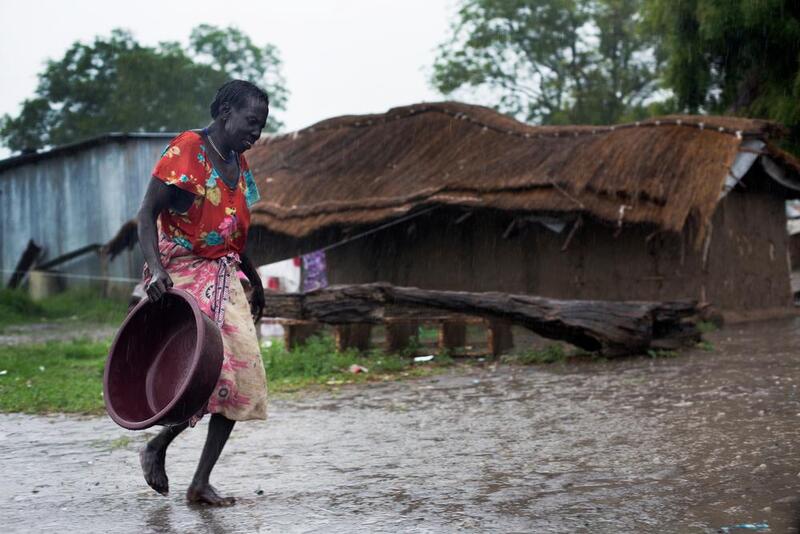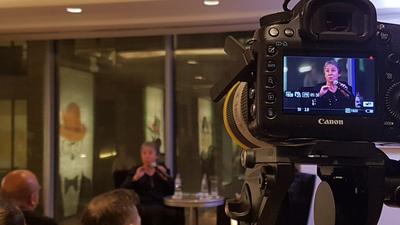Jonathan Whittall
Head of Humanitarian Analysis at Médecins Sans Frontières/Doctors Without Borders (MSF), based in Beirut
Twitter: @offyourrecord
In a recent opinion piece in the Guardian, former British foreign secretary and now the head of the International Rescue Committee, David Miliband, argued that the goals of humanitarian action needed to be reassessed and that humanitarian goals – or, as he calls them, "HuGos" – needed to be set.
Miliband makes some strong points. The approach to urban refugees needs to be adapted. The aid system is overstretched by the scale of current crises – from the Central African Republic to Syria.
But then come his proposed solutions.
"HuGos"
Miliband refers to the humanitarian "enterprise" as having goals beyond just saving lives. All forms of aid are lumped into one big pot. Disaster risk reduction, increasing literacy rates and promoting economic livelihoods are apparently also a part of this so-called enterprise.
He points out that humanitarians need to be "working with and through local partners and governments not bypassing them". To help in raising the standard of aid, Miliband calls for "HuGos" to "raise the bar of quality" as a set of goals that are either distinct from or integrated into a revision of the millennium development goals.
Miliband is grouping a wide variety of conflicts and crises under the concept of "conflict affected and fragile states", which is a donor category that is increasingly driving funding flows but leads to unhelpful and dangerous generalisations on what should happen and in what priority. The reality is that many conflicts and natural disasters happen in states not classified as fragile.
The desire to create a humanitarian counterpart to the MDGs is a symptom of an aid system that is obsessed with combining both humanitarian aid with development responses. This multi-mandated approach to aid delivery is most appealing to Miliband.

Diluted humanitarian action
The problem with this is that aid is then tied to objectives that detract from the priority of saving lives and can be perceived as instruments of political frameworks, which in turn has direct consequences for access.
Try explaining to an armed opposition member that the purpose of your humanitarian aid is to build the capacity of the institutions of the state that he has taken up arms against.
Miliband seems to dismiss the notion that humanitarianism is only about saving lives. However, that is exactly what it is about.
The underperformance of humanitarian aid is not going to be helped by embracing additional goals, nor by bundling them into one single sanctified goal of poverty reduction or development, where the essence of effective humanitarian action will be diluted into homeopathic doses within a broad, politicised mixture.
But Miliband doesn't stop here. He also wants to streamline so-called 'new aid actors' into adhering to a set of HuGos. If anything, "common purpose" should be for all those that claim to be humanitarian to return to an impartial provision of aid, not to be drawn into the dangerous catchall discourse, where unsurprisingly ex-foreign ministers find a familiar territory.
"Tick-the-box humanitarianism"
In addition to these fundamental concerns, there is also the reality that overarching or universalised standards do not work, for the exact reasons that Miliband mentions in the beginning of his article.
The humanitarian landscape is changing. Some aid actors prefer to build high quality tent camps for refugees, while other aid actors stick to the minimum requirements. Some aid actors respond well to dispersed urban settings where the displaced seek refuge among existing residents, while others struggle to find an approach that fits this new environment.
Whichever type of aid actor you are, the bottom line is that tick-the-box humanitarianism does not promote the innovation, adaptability and extreme flexibility often needed to save lives and alleviate suffering.
Getting ahead of the wrong curve
Miliband urges us to "get ahead of the curve". However, it seems to me that he is trying to get ahead of the wrong curve. The road he is on will further embroil humanitarianism into state power at a time when it needs to do the exact opposite.
Where humanitarian goals would be interesting is if they held donors to account for a minimum funding allocation to humanitarian aid in emergencies. No strings attached humanitarian funding from a non-exclusive club of donors would go some way to removing the temptation to place humanitarian action at the service of, for example, state building objectives in South Sudan.
What humanitarian organisations should be doing is mobilising to save lives and alleviate suffering in the quickest way. Instead of entangling this objective into other priorities, humanitarians need to stand separate so that the agendas that slow down or hinder our response can be legitimately challenged.
This article first appeared on theguardian.com on Monday, 10th March 2014




